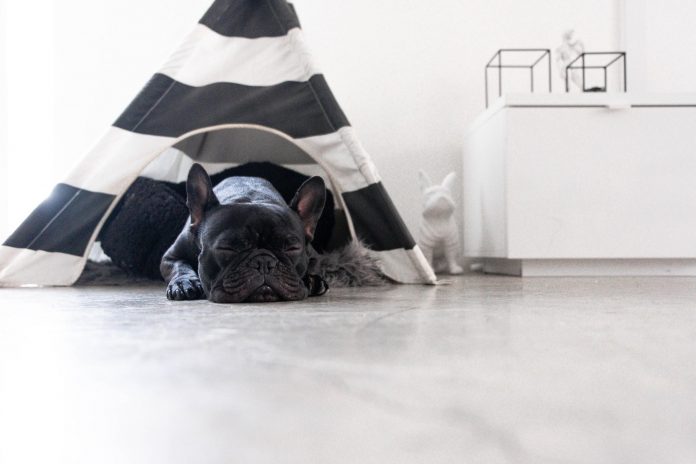Pets, especially dogs, can be highly affected by anxiety. Being social animals, most pets have the same basic needs as humans such as touch, love, affection, security, and comfort. Unfortunately, not all pets receive these things, and this can result in anxiety. It’s important to be able to identify if your pet is experiencing anxiety or some other medical condition. Some symptoms of anxiety may be urinating in new locations inside the home, hiding or seeking isolated places to hang out, pacing, and ripping apart furniture or attacking the garbage cans.
So, why would your pet experience anxiety?
Separation
Much like human children, the way your pet identifies time is much different than you do. While you may use a clock, your pet understands routine. Whether you are gone five minutes or five hours doesn’t matter. Your pet will identify time along the lines of going for a walk before you leave and hearing the garage door open when you arrive. Those are everyday routines that tell your dog when you are leaving and arriving. However, separation anxiety manifests when a pet becomes separated from their guardian and the pet is unsure if you will be coming back. If your pet suspects you won’t be home or there has been a deviation from routine, this can lead to anxiety and abnormal behavior.
An abusive past
Regardless how good of a guardian you are, if your pet has experienced physical or mental abuse in the past it is likely to re-manifest at some point as these are deeply ingrained emotions your pet won’t forget.
Medical concerns
Many pet breeds are susceptible to certain medical disorders such as hypothyroidism. When your pet feels uncomfortable or frequently visits the vet due to illness, this can cause insecurity and anxiety.
Aging
Age-related anxiety is frequently associated with Cognitive Dysfunction Syndrome (CDS) which affects memory learning, and perception. Due to these changes your pet may feel confused and uncomfortable.
Similar to humans, helping your pet to cope with anxiety has a lot to do with improving sleep quality. When dogs feel anxiety, they will both act out during the day as well as become restless at night. This restlessness leads to sleep disruption and sleep deprivation. One common way to help calm your pet is sleeping in the same bed together which provides warmth and a sense of comfort and security.
Sleeping with your pet can help ease anxiety, though a restless pet can also lead to your own sleep disruption. An alternative recommendation is using a white noise machine. A white noise machine uses all of the frequencies and plays them at the same relaxing tone. Because your pet likely has excellent hearing, a white noise machine can help to blend exterior sounds such as outdoor barking, emergency vehicle sirens, noisy neighbors, and street noise that may cause your pet to wake up and become distracted.
Helping your pet cope with anxiety has a lot to do with ensuring that your pet is sleeping well. White noise machines are an excellent way to blend distracting noises that can create sleep disruption and increase underlying concerns that manifest in symptomatic anxiety.
























